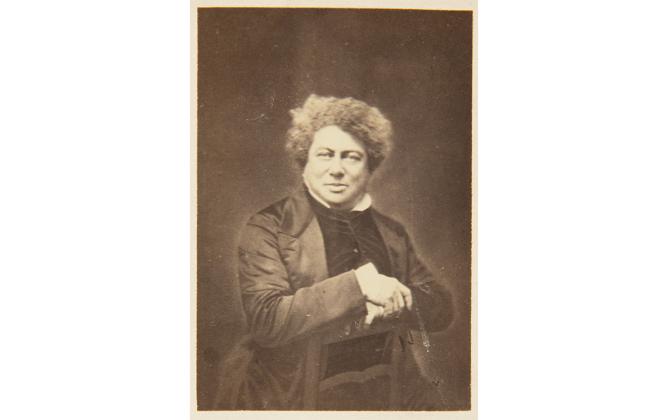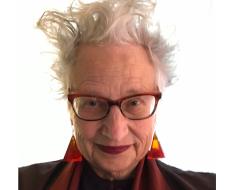Alexandre Dumas père (father)—the celebrated and prolific nineteenth-century author of The Three Musketeers, The Man in the Iron Mask, and The Count of Monte Cristo, among many others—was a man of mixed race whose father was nicknamed “The Black Hercules” while serving as a general in Napoleon Bonaparte’s army. Dumas père’s grandmother Cezette Du Mas was a Haitian slave; his grandfather was the white French aristocratic planter who owned her and her children. The revolutionary general, Dumas père, and the latter’s son, Dumas fils (son), also a celebrated author, all chose to bear the patronym of a slave woman rather than a white aristocrat, yet their Blackness has come in and out of view, sometimes attacked, sometimes erased, and sometimes celebrated.
Dumas père well understood the price of fame, yet like so many during this century of explosive innovation, including a rapidly expanding press and the birth of photography, he was thrilled by it. He lamented that the celebrated man “no longer belonged to himself; for applause and honors, he had sold himself to the public. . . . Publicity with its thousands of voices, would break him into pieces, scatter him over the world.” Posing complicated questions about caricature’s exaggerations, racial typologies, and the challenge of individuating men of color, Alexandre Dumas’s Afro reassembles the “scattered pieces” of Dumas and his circle, including American actress, poet, and painter Adah Isaacs Menken.



